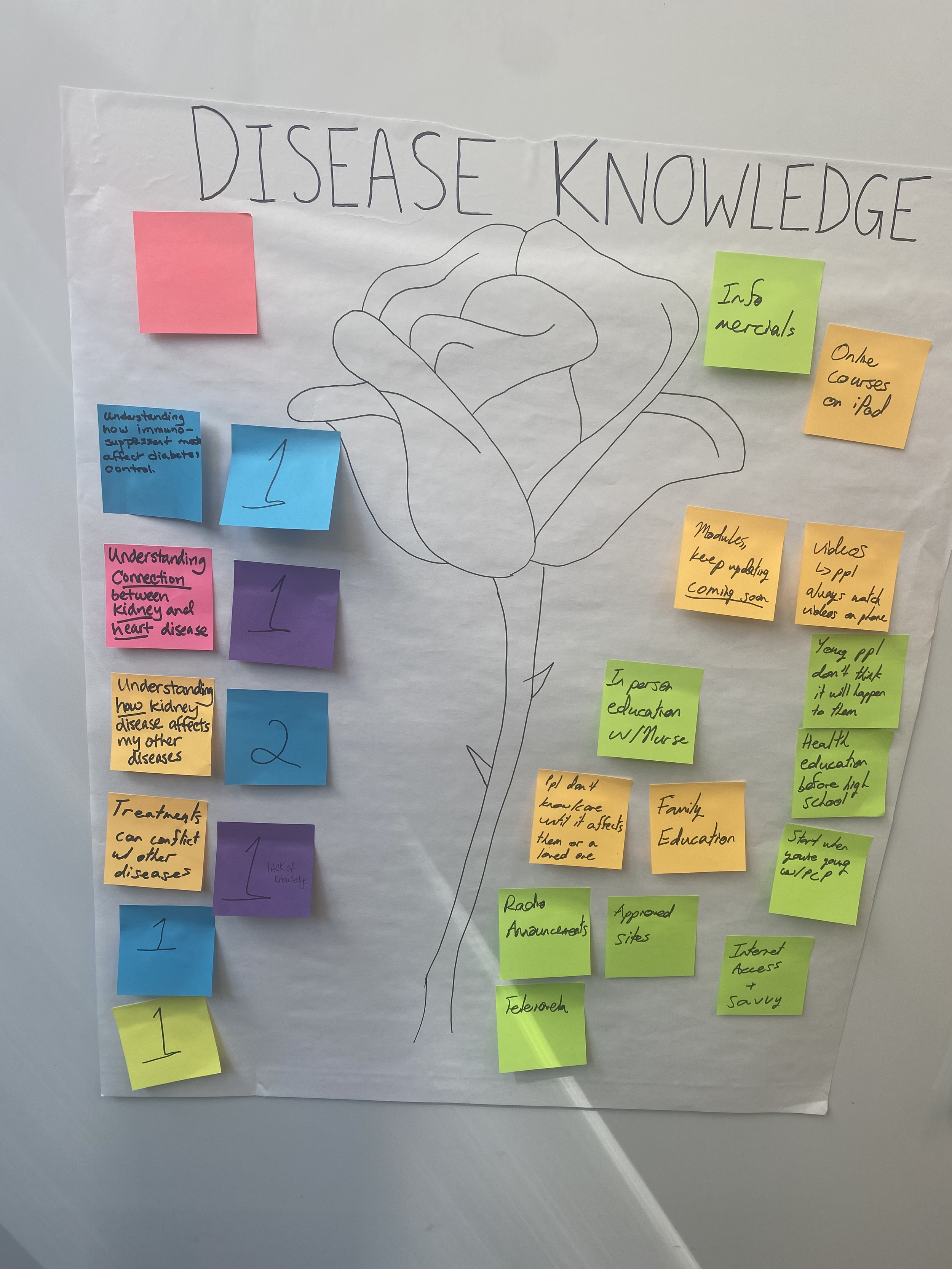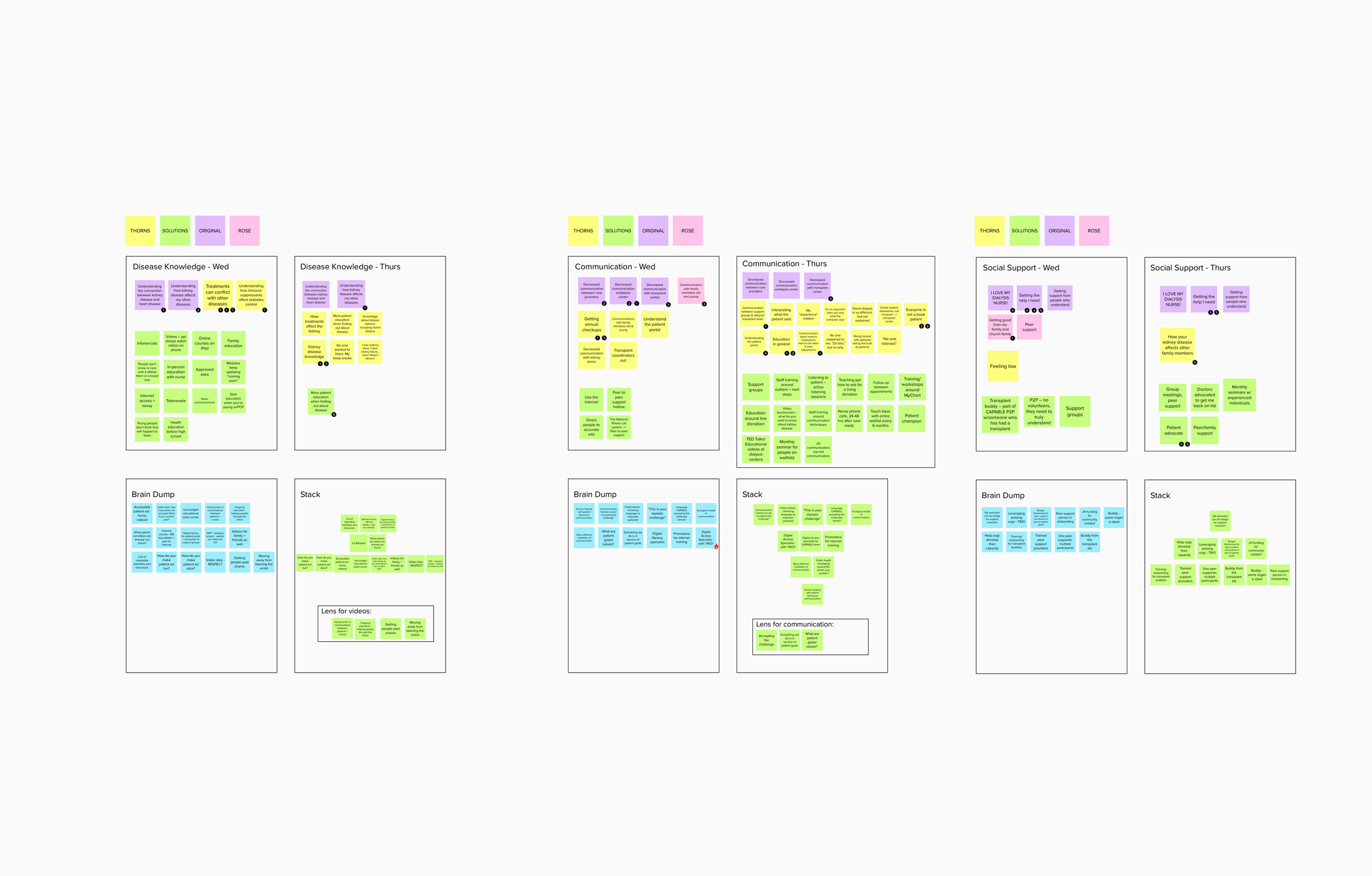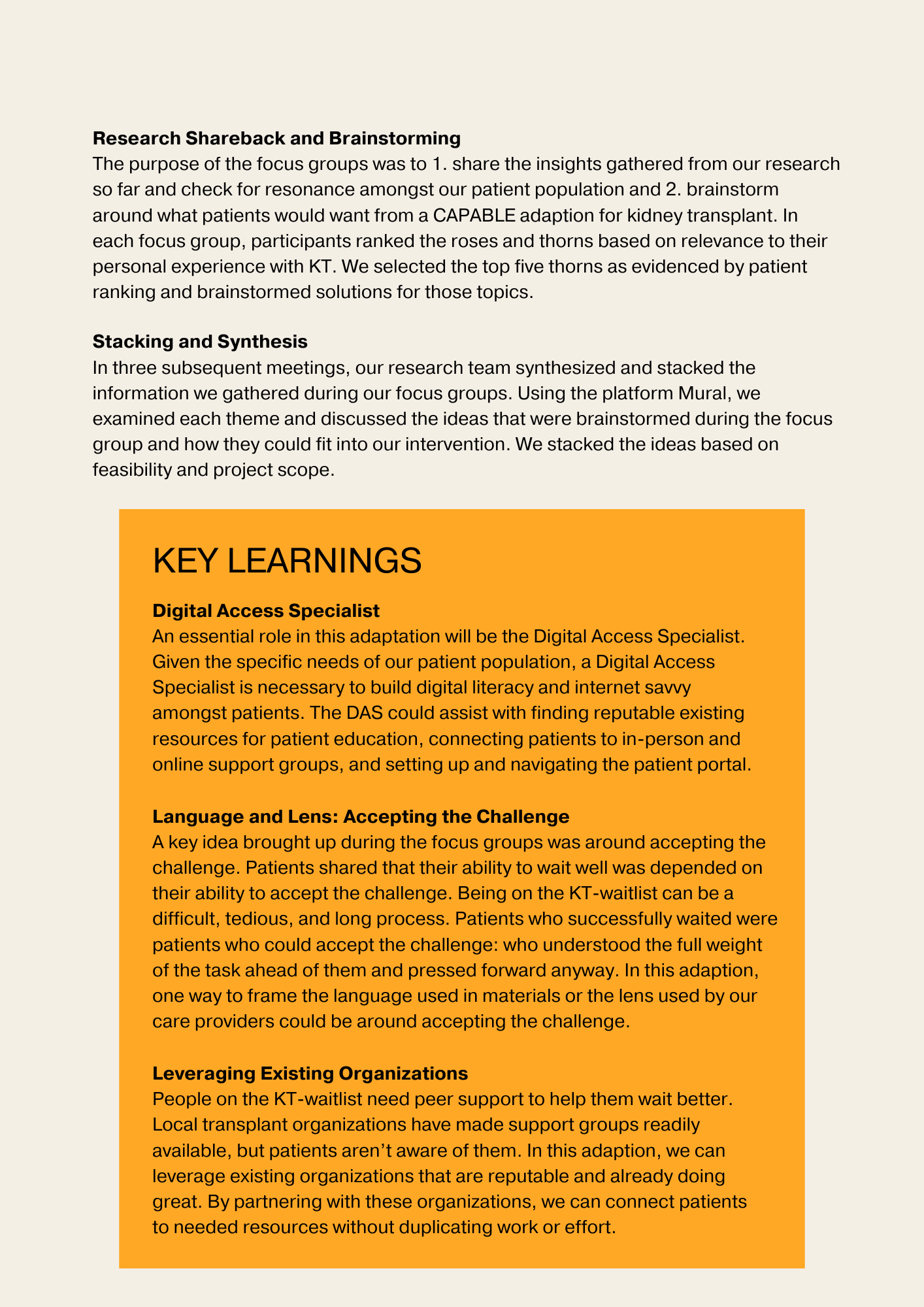Design Challenge:
CAPABLE is an existing intervention that supports older adults aging well in their homes by providing them with a care team consisting of a nurse, occupational therapist, and handyworker. The goal of the CAPABLE-KT Study is to design a program based on CAPABLE to support older adults who are on the kidney transplant waitlist. To adapt this intervention effectively, we needed to listen to patients, understand their experiences, and co-create this adapted intervention together.
Design Solution:
For this study, our HCD process included photovoice, listening/co-creation sessions, and affinity mapping. We held four sessions with our core stakeholders - patients, caregivers, and leaders in the kidney transplant community. Through deep listening and empathy-building, our team learned an enormous amount about their experiences. We applied our learnings to our intervention design and added the following key factors:
1. To improve health communication and health knowledge, we will add the role of a Digital Access Specialist to the CAPABLE team. In addition to providing patients with a tablet/internet access to get connected, this specialist will support patients in navigating the patient portal, finding reputable sources for health information, connecting to virtual peer support groups, and more.
2. To support patients in staying motivated and reaching their goals while on the kidney transplant waitlist, we will add environmental cues to the intervention, like a goals board and/or custom motivational stickers.
3. To address the need for peer support, we will leverage regional and national organizations like TRIO or the National Kidney Foundation to ensure that patients are well-connected to individual or group peer support.
Click here to view the CAPABLE-KT Research Summary slides.
Case Study 005
Adapting CAPABLE to the Older Kidney Transplant Population.







